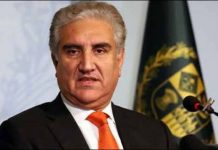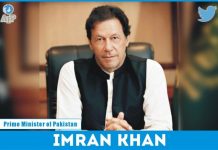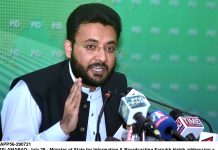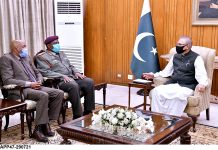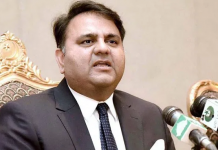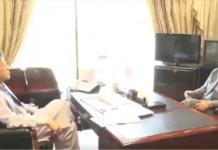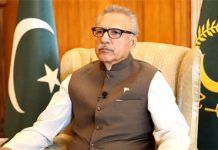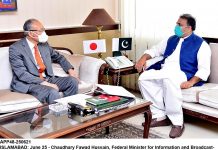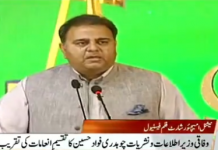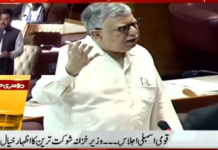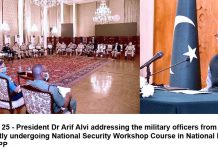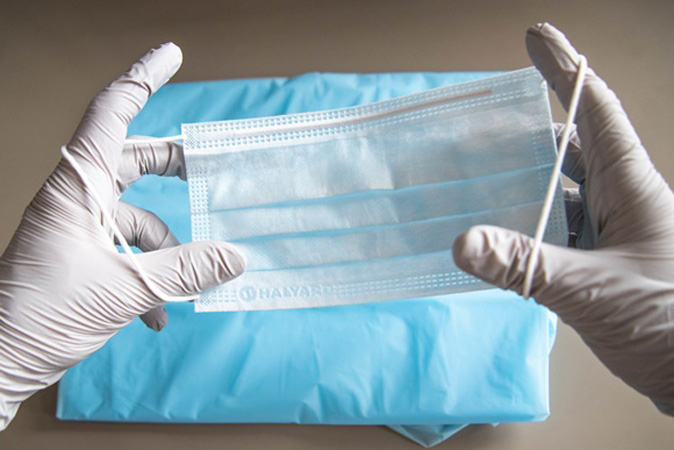
When the business community is rendering great sacrifices by reducing their business timings and following the SOPs (Standard Operating Procedures) to do away with second wave of COVID-19 issued by the government time to time just to protect the people at large, the political parties which are resorting to hold public gatherings and rallies on various pretexts must prefer the people’s lives over their politics, leading businessmen of the city expressed these view while talking to APP here on Saturday.
Though Pakistan Democratic Movement (PDM), an amalgamation of opposition parties, has the right to do politics, it must revisit its public meetings schedule and renounce such activities to protect themselves, people and their near ones from the pandemic, they added on the condition of anonymity.
They were of the view that holding public gatherings would also give a wrong signal to the outer world that Pakistan is not taking this fatal virus seriously, and this may also cause various economic repercussions for the country.
While a medical expert told this scribe that the risks of getting COVID-19 are higher in crowds in which infected people spend a long time together therefore adopting precautions is even indispensable.
Meanwhile, UBG Chairman Iftikhar Ali Malik, presidential candidate in the upcoming election of Federation of Pakistan Chambers of Commerce and Industry (FPCCI) Khalid Tawab and the candidate for Vice President Almas Haider told APP that at this time of difficulty, the country cannot afford any sort of political turmoil when the second but severe wave of Covid-19 is gripping the nation. This would definitely have a very harsh and bad impact on the overall economy, they added.
The United Business Group Chairman (UBG) Iftikhar Ali Malik said, “What we need is political stability which is a prerequisite for sustained economic growth to cope with the multiple challenges in Pakistan.”
Malik, who is also President of SAARC Chamber of Commerce and Industry, added that politics of confrontation and agitation had never ensured economic stability, security and development of a country as well as wellbeing of the people.
Time has now changed, the influential nations are paying more attention to financial warfare to maintain their dominance and using various techniques to weaken the economics of poor nations while Pakistan’s economy is not strong enough to withstand economic recession, he observed.
Presidential candidate in the FPCCI upcoming election Khalid Tawab said that despite coronavirus has crippled the major and developed countries’ economy and slowdown the global trade activities, Pakistan has managed to revive its jeopardized economy due to effective and feasible policies of the government. The holding of public gatherings would definitely hit hard this positive economic turnaround in Pakistan, he remarked.
“Our Country has tremendous potential as we have enormous talent. We need consistency in government policies,” he added. He urged all the segments of the society including traders, industrialists, and politicians to play a key role in strengthening the economy.
While the VP candidate Almas Haider said that least public/social gatherings and observance of all other SOPs would help in speedy elimination of the coronavirus.
Dr. Malik Ihsan Ullah, an expert of nanomedicine and infectious diseases, told APP that coronavirus affects the people in many ways, citing that most of the infected individuals suffer from mild to moderate illness but recover without being hospitalized. He explained that most common symptoms of the virus are fever, dry cough and tiredness, while less common symptoms which may affect some people include aches and pains, sore throat, diarrhea, conjunctivitis, headache, loss of taste or smell, a rash on skin, or discoloration of fingers or toes.
He cited that the World Health Organization (WHO) suggested some doable safety steps such as maintaining social distancing, avoiding crowds, wearing a face mask, cleaning hands frequently and coughing into a bent elbow or tissue.
Dr Malik Ihsan Ullah said that the risks of getting COVID-19 are higher in crowds in which infected people spend a long time together therefore adopting precautions is indispensable.

